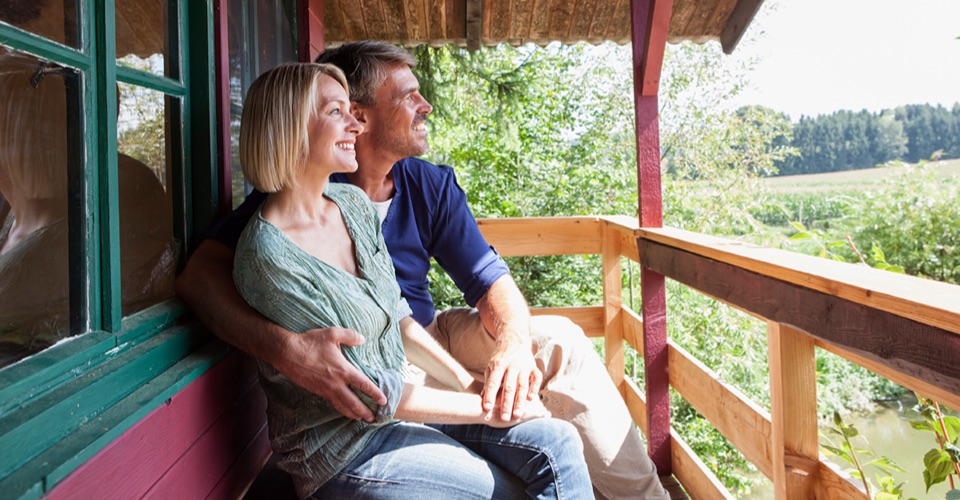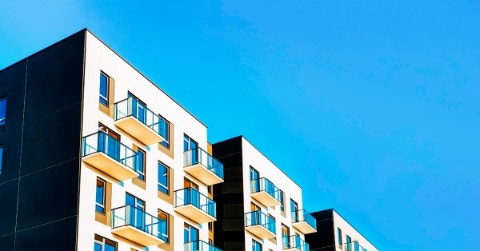
Buying a second home
Looking to buy a second home? Learn about the process and see our mortgage options for your second house, cottage or condo. If you’re a member, you can use our mobile and online services to apply for pre-approval, lock in your rate and see how much you can borrow.
Not a member? Schedule a call to make an appointment for pre-approval.

What counts as a second home?
Your second home is a home that you occupy for just part of the year, in addition to your main residence. Most of the time, your main residence is your home—the house or condo where you spend most of your time. Your secondary residence, or second home, is the one you use for weekends and vacations.
Some points to consider before buying a second home
Your goals
A second home is a major investment, whether you buy a cottage, house or condo. Make sure you have a clear plan for this second property, both in the short term and for the future. The process of purchasing a second home is similar to buying a first home, so we suggest you read the steps for first-time home buyers to refresh your memory.
Questions to ask yourself
- How often will you be at this second home?
- Are you buying to rent?
- How much time can you spend maintaining it?
- Do you plan to move there permanently when you retire?
- Do you plan to sell this second property at some point, or will you pass it down to your children?
It’s important to understand why you want to buy a second home before taking the plunge. Your mortgage advisor can help you pin down your goals and guide you on how to secure financing.
Good to know
Want to buy a second home in the US? We have branches in Florida to help you buy a house, condo or other property. We provide services in both English and French, in person or remotely.
Tax considerations
To avoid surprises, it’s a good idea to learn about potential tax issues that may come with buying a second home.
Examples of tax considerations
- If you plan to rent out your cottage, you'll need to declare your net rental income and pay taxes on it.
- If you ever sell or transfer your property, 50% of the capital gains will be added to your taxable income for that year. There are, however, ways to reduce your tax bill.
We recommend speaking with a tax specialist, real estate appraiser or financial planner to help you make an informed decision.
Your budget
Once you have a clear goal, make sure you can afford it. In addition to the down payment, consider all the expenses that come with buying a new house, such as property taxes and insurance. Then, add all the maintenance costs for your second home. These can include transportation to get to and from your second property or security systems to keep your second home safe when you’re not there.
To calculate your expenses and see what you can afford, use our online budget tool.
Need a hand?
Check out our platforms if you’re looking to buy or renovate your dream cottage or vacation home.
DuProprio
Explore cottages for sale without an agent on the DuProprio® site.
Confia
Confia® connects you with a real estate broker.
RenoAssistance
Get support for your renovations with RenoAssistanceTM.
2 ways to finance your second home purchase
1. Use your home equity
You can use the equity on your main home to buy a second home.
For example, if you have a house with a determined value of $600,000 and you have $200,000 left on your mortgage, start by calculating 80% of $600,000, which is $480,000. Then subtract the $200,000 that you still owe. That leaves you with $280,000 you can borrow for your second home.
2. Apply for a second mortgage
Another option for financing your second home is to apply for a second mortgage loan.
Our financing solutions
See our mortgage rates and find the financing that's right for your project and needs.
Versatile Line of Credit
Carry out your goals with a financing option that combines the benefits of a mortgage and a home equity line of credit.
Mortgages
Learn the basics so you can choose the mortgage option that's right for you.
See our insurance options
Loan insurance
Protect your mortgage so you and yours can rest easy in case of disability or death.
Home insurance
Find suitable coverage for your cottage or secondary residence.
Get pre-approved
By phone
Make an appointment to apply for mortgage pre-approval.
Monday to Friday: 8 AM to 9 PM
Saturday: 9 AM to 6 PM
Montreal area:
514-745-9499 This link opens your phone app.
Elsewhere in Canada:
1-844-626-2476 This link opens your phone app.
To avoid waiting on hold, you can also schedule a call.
Our tips for buying a second home
- Topic: Loans and borrowing Getting ready to buy a cottage?

- Topic: Loans and borrowing 7 things to check before buying a condo
